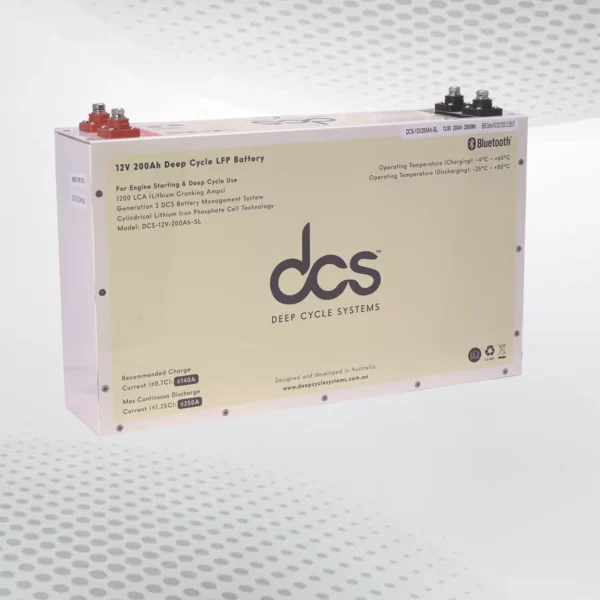Chronic pain affects millions of individuals worldwide, often significantly impacting their daily lives and overall well-being. While there are various physical causes of chronic pain, such as injuries or medical conditions, stress is a significant yet often overlooked factor that can contribute to or exacerbate these symptoms. The relationship between stress and chronic pain is complex, involving intricate interactions between the mind and body. Understanding the interplay between stress and chronic pain is essential for effective management and treatment. This comprehensive guide will delve into the causes of stress-related chronic pain, the symptoms to watch for, and practical strategies for managing pain and reducing stress.
What is Chronic Pain?
Chronic pain is defined as pain that persists for three months or longer, often occurring after the initial injury or medical condition has healed. Unlike acute pain, which serves as a warning signal of injury or illness, chronic pain can exist independently of any identifiable cause, making it particularly challenging to diagnose and treat.
Chronic pain can take many forms, including:
- Musculoskeletal Pain: Pain in the muscles, bones, and joints, often associated with conditions like arthritis or fibromyalgia.
- Neuropathic Pain: Pain resulting from nerve damage or dysfunction, commonly seen in conditions like diabetes or multiple sclerosis.
- Visceral Pain: Pain originating from internal organs, which can be difficult to localize and may be associated with conditions such as irritable bowel syndrome (IBS).
The Impact of Chronic Pain
Living with chronic pain can profoundly affect an individual’s quality of life. It can lead to:
- Reduced Mobility: Persistent pain can limit physical activity and mobility, making it challenging to engage in daily activities.
- Emotional Distress: Chronic pain is often associated with anxiety, depression, and other mental health issues due to the constant struggle with pain.
- Social Isolation: Individuals with chronic pain may withdraw from social activities, leading to feelings of loneliness and isolation.
The Link between Stress and Chronic Pain
Stress is a natural response to challenging or threatening situations. However, when stress becomes chronic, it can have a significant impact on physical health, including the experience of pain. Understanding how stress contributes to chronic pain is crucial for effective management.
Physiological Response to Stress
When a person experiences stress, the body activates the “fight or flight” response, releasing stress hormones like adrenaline and cortisol. This physiological response prepares the body to respond to danger, but when stress is prolonged, it can lead to several health issues, including chronic pain.
- Muscle Tension: Stress can cause muscles to tense up, leading to pain in areas such as the neck, shoulders, and back.
- Inflammation: Chronic stress can lead to increased inflammation in the body, which is linked to various chronic pain conditions.
- Altered Pain Perception: Stress can amplify the perception of pain, making even mild discomfort feel more intense.
Psychological Impact
Stress can also influence mental health, contributing to anxiety and depression, which can, in turn, exacerbate chronic pain. The relationship between psychological distress and physical pain is a bidirectional one—pain can lead to stress and vice versa.
- Catastrophizing: Individuals under stress may catastrophize their pain, leading to heightened anxiety and increased pain perception.
- Avoidance Behavior: Stress and pain can lead to avoidance behaviors, where individuals limit their activities to prevent pain, leading to further physical deconditioning and increased discomfort.
Common Types of Stress related chronic pain
Several conditions are particularly associated with Stress related chronic pain. Understanding these conditions can help individuals recognize the signs and seek appropriate treatment.
Tension Headaches
Tension headaches are among the most common forms of chronic headache pain, often triggered or worsened by stress. They typically present as a dull, aching sensation and can last from hours to days.
- Symptoms: Mild to moderate pain, pressure around the forehead, temples, or back of the head, and sensitivity to light or noise.
- Management: Stress reduction techniques, relaxation exercises, and over-the-counter pain relievers can help manage symptoms.
Fibromyalgia
Fibromyalgia is a chronic pain disorder characterized by widespread musculoskeletal pain, fatigue, and tender points throughout the body. Stress is known to exacerbate symptoms in individuals with fibromyalgia.
- Symptoms: Widespread pain, fatigue, sleep disturbances, cognitive difficulties (often referred to as “fibro fog”), and sensitivity to touch or temperature.
- Management: A multidisciplinary approach, including medication, cognitive-behavioral therapy (CBT), physical therapy, and stress management techniques, is often recommended.
Irritable Bowel Syndrome (IBS)
Irritable Bowel Syndrome is a functional gastrointestinal disorder that can cause abdominal pain, bloating, and changes in bowel habits. Stress is a known trigger for IBS flare-ups.
- Symptoms: Cramping abdominal pain, diarrhea, constipation, bloating, and gas.
- Management: Dietary changes, stress management, and medications may be used to alleviate symptoms and improve quality of life.
Chronic Lower Back Pain
Chronic lower back pain can be influenced by stress, particularly when stress leads to muscle tension or changes in posture. This type of pain can significantly impact daily activities and overall well-being.
- Symptoms: Persistent pain in the lower back, stiffness, and reduced mobility.
- Management: Physical therapy, stretching exercises, and stress reduction techniques are often recommended for managing chronic lower back pain.
Recognizing Symptoms of Stress related chronic pain
Identifying the symptoms of Stress related chronic pain is crucial for early intervention and management. While symptoms can vary from person to person, some common indicators include:
- Persistent Pain: Pain that lasts longer than three months and does not seem to improve with rest or traditional pain relief methods.
- Muscle Tension: Noticeable tightness or soreness in the muscles, particularly in the neck, shoulders, and back, often linked to stress.
- Fatigue: Chronic fatigue and low energy levels can accompany pain, making it difficult to engage in daily activities.
- Mood Changes: Increased anxiety, irritability, or feelings of hopelessness can be associated with stress-related pain.
If you recognize these symptoms, it may be beneficial to seek the guidance of a healthcare professional who can help you explore the connection between your stress levels and chronic pain.
Managing Stress-related chronic pain
Managing Stress-related chronic pain requires a multifaceted approach that addresses both the physical and emotional components of pain. Here are several strategies that may help:
Stress Management Techniques
Implementing stress reduction techniques is crucial for managing pain. Here are some effective methods:
- Mindfulness Meditation: Practicing mindfulness can help reduce stress and improve emotional regulation. Mindfulness encourages you to focus on the present moment, reducing anxiety about the past or future.
- Deep Breathing Exercises: Engaging in deep breathing can activate the body’s relaxation response, reducing muscle tension and promoting calmness.
- Yoga and Tai Chi: Both practices incorporate movement, stretching, and breathe control, which can alleviate stress and improve flexibility, strength, and pain management.
Physical Activity
Regular physical activity is one of the most effective ways to manage Stress related chronic pain. Exercise releases endorphins, which are natural pain relievers and mood enhancers.
- Low-Impact Activities: Activities like walking, swimming, or cycling can be beneficial, especially for those with chronic pain conditions. Gentle stretching and strength training can also improve muscle strength and flexibility.
- Consistency is Key: Aim for regular physical activity, as even short bouts of exercise can contribute to long-term pain relief.
Cognitive Behavioral Therapy (CBT)
Cognitive Behavioral Therapy is a structured approach that helps individuals identify and change negative thought patterns that contribute to stress and pain.
- Changing Thought Patterns: CBT focuses on identifying unhelpful thoughts related to pain and replacing them with healthier perspectives. This approach can help individuals develop more effective coping strategies.
- Behavioral Techniques: CBT can also include behavioral techniques that encourage positive actions, such as increasing physical activity or engaging in social interactions.
Pharmacological Approaches
In some cases, medication may be necessary to manage chronic pain and associated stress. It is essential to consult a healthcare professional to determine the most appropriate treatment plan.
- Pain Relievers: Over-the-counter medications, such as NSAIDs (e.g., ibuprofen) or acetaminophen, may help alleviate pain.
- Prescription Medications: In some instances, prescription medications, including muscle relaxants, antidepressants, or anticonvulsants, may be used to manage chronic pain.
Alternative Therapies
Consider exploring alternative therapies to complement traditional treatments for chronic pain and stress management:
- Acupuncture: This ancient Chinese practice involves inserting thin needles into specific points on the body to relieve pain and reduce stress.
- Massage Therapy: Therapeutic massage can help relax tense muscles, improve circulation, and promote relaxation, making it an effective complementary treatment for chronic pain.
- Chiropractic Care: Chiropractic adjustments may help alleviate pain, particularly in the spine, and improve overall body alignment.
Creating a Supportive Environment
Having a supportive environment can significantly impact your ability to manage Stress related chronic pain. Here are some ways to create a conducive atmosphere for healing:
Build a Support Network
Surround yourself with supportive friends, family, or support groups who understand your struggles and can provide encouragement. Sharing experiences and coping strategies can be invaluable in managing chronic pain and stress.
Support Groups: Consider joining a local or online support group for individuals dealing with chronic pain. These groups can provide a sense of community and understanding.
- Communicate Openly: Let your loved ones know how they can help you during difficult times. Open communication fosters understanding and creates a supportive environment.
Maintain a Healthy Lifestyle
Adopting a healthy lifestyle can help mitigate stress and improve overall well-being. Consider the following lifestyle choices:
- Balanced Diet: Eating a balanced diet rich in whole foods, fruits, vegetables, and lean proteins can support physical health and improve energy levels.
- Hydration: Staying well-hydrated is crucial for overall health and can positively impact energy levels and mood.
- Sleep Hygiene: Prioritize good sleep hygiene by establishing a regular sleep routine, creating a comfortable sleep environment, and minimizing distractions.
Seek Professional Help
If you find that your chronic pain and stress are overwhelming, don’t hesitate to seek professional help. A healthcare provider, therapist, or pain specialist can help you develop a comprehensive treatment plan tailored to your needs.
- Pain Management Clinics: These specialized clinics can provide comprehensive evaluations and multidisciplinary approaches to pain management.
- Mental Health Professionals: A therapist or counselor can help you address the psychological aspects of chronic pain and teach effective coping strategies.
Conclusion
Stress related chronic pain is a complex and challenging condition that affects many individuals. The relationship between stress and pain is multifaceted, and addressing both aspects is crucial for effective management. By understanding the underlying causes of stress-related pain and exploring various coping strategies, individuals can improve their quality of life and regain control over their well-being. From implementing stress management techniques and maintaining a healthy lifestyle to seeking professional support, there are numerous pathways to managing Stress related chronic pain.
FAQs
What are the common symptoms of stress related chronic pain?
Common symptoms include persistent pain in specific areas (such as the back, neck, or head), muscle tension, fatigue, emotional distress (such as anxiety or depression), and changes in sleep patterns.
How can stress contribute to chronic pain?
Stress can lead to muscle tension, increased inflammation, and altered pain perception. Additionally, psychological factors like catastrophizing can exacerbate the experience of pain.
Are there specific therapies recommended for managing stress related chronic pain?
Cognitive Behavioral Therapy (CBT), mindfulness meditation, physical activity, and alternative therapies like acupuncture and massage therapy can be effective in managing Stress related chronic pain.
Is it possible to manage chronic pain without medication?
Yes, many individuals successfully manage chronic pain through non-pharmacological approaches, including physical therapy, exercise, stress management techniques, and alternative therapies.
When should I seek professional help for chronic pain?
If chronic pain interferes with your daily life, persists despite self-management strategies, or is accompanied by significant emotional distress, it’s essential to seek professional help. A healthcare provider can help assess your condition and develop an appropriate treatment plan.

















